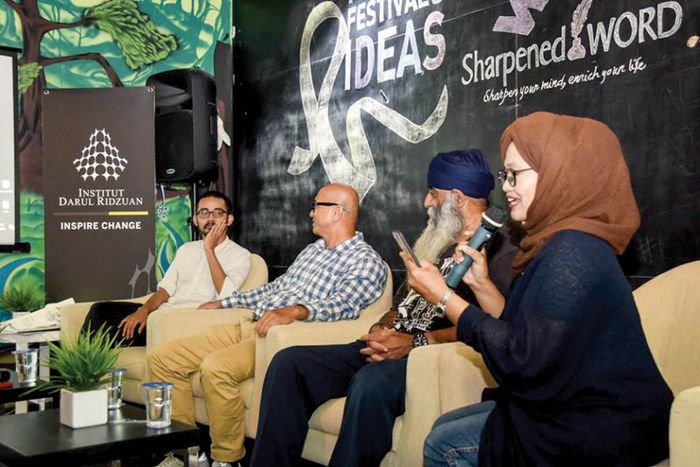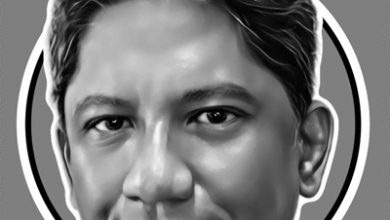The Importance of Arts and Literature Magazines


The April edition of Sharpened Word was held on Saturday, April 21 at the Institut Darul Ridzuan (IDR) knowledge centre from 2pm till 5pm. While the last session was dominated by empowering women, this session welcomed three speakers who spoke on the title, “Why We Need Arts and Literature Magazines”. They were Abdullah Nazir Harith Fadzilah, Jaspal Singh and Liew Kian Yap.
In the midst of studying engineering in Melbourne, Abdullah Nazir Harith Fadzilah was captivated with the lure and plethora of independent and second-hand bookshops. As he pictured what it would be like to run his own, his bookshop, Tintabudi has now turned into a reality. Tintabudi began its operation in Ipoh in 2016 and has now moved to Zhongshan Building, Kuala Lumpur.
“The challenge of literary magazines in Malaysia is the language because it’s diverse. It’s much different than in Indonesia as they only speak one language so it’s easier to cater to the market they want. Also, it goes back to the content. People want to read texts that are worth paying for,” he said.
Nazir feels that the appreciation of good language is hard to come by because people do not see it as important. As grand as an idea can be, getting a good editor and the right people to execute it is essential. Do it as a passion and the endearment for the craft of language and writing.
“When I came back to Malaysia, it was hard for me to come across materials regarding social sciences and literature. Before opening Tintabudi, I visited libraries and found that we’re in dire need of additions. In order to see how the culture of knowledge is going to survive, we need to have access to good books in libraries and local bookshops,” Nazir opined.
Jaspal Singh, a well-defined freelance copy editor, editor, proofreader and style guide consultant, was once a sub-editor for Business Times, a senior reporter for New Straits Times and the Perak bureau chief of Malay Mail. He also provides training in English writing for non-governmental organisations, government agencies and companies.
“We need better contents in magazines and know our market. Identify and look into what sells. I believe that the concept of independent bookstores play a crucial role. I read old magazines, I’ve Reader’s Digest which dates back to the 50s. There’s just something very rustic and lively about reading old magazines,” expressed Jaspal.
He feels the likelihood of Artificial Intelligence (AI) taking over printed materials will only occur in another 500 years or so because intuition is something AI cannot provide. For him to claim himself a copy editor, there is a certain standard he aspires. While he intends to improve the quality of language and content, some writers question his work.
“For phrases, concept and content to be used properly, I do a lot of research in finding out if a particular structure should be changed. Modern magazines carry all kinds of errors, it worries me that people don’t take language seriously. Guard your language, understand the rules and know how to break them gracefully. Another thing we need is a proper business moral. You can’t merely have printed versions without the digital one, a balance is needed,” he remarked.
Liew Kian Yap, who publishes his own art magazine, ArtMalaysia, aspires to create an interactive platform to promote established Malaysian artists. Based in Langkawi, he is also the man behind the forthcoming Langkawi Art Biennale 2018 which will take place September 30 till October 4 this year.
“After I printed my first 3000 copies of ArtMalaysia, I went to universities and art galleries to give them away for free. After my third issue, I set a condition. I would provide three more free issues but, in return, they needed to tell me what they liked most about my magazine. And I used the feedback to help me move on,” Liew said.
He would travel around Malaysia to meet artists and write about them before sending his pieces to a copywriter to check on his grammar. Some time later, Tourism Malaysia approached him for an interview and sponsored his events. He goes to Singapore, Indonesia, China and India to promote his magazine.
“Due to the high exchange rate and implementation of GST, we had to stop printing. I tried venturing into e-magazine but found it too risky. We plan to continue but with some changes. Printed magazines are needed for people to refer to and to encourage people via the stories told,” he exclaimed.
Khaleeja


